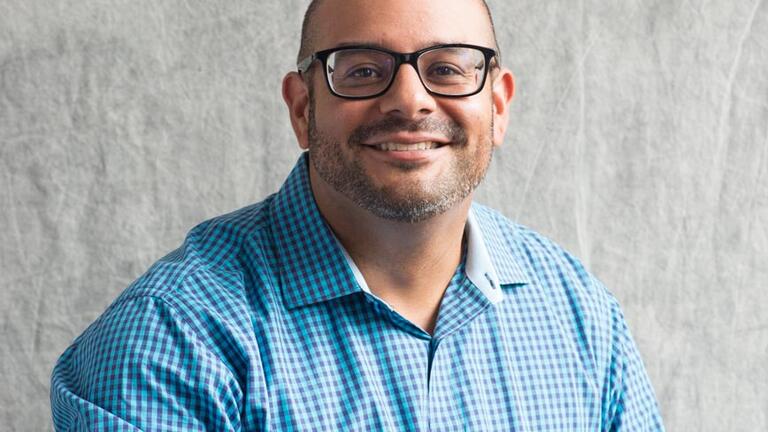The Social Justice Training Institute Welcomes School of Education Faculty Member
Dr. Alejandro Covarrubias, department of leadership studies, joined the Social Justice Training Institute (SJTI) as faculty in summer 2018. SJTI is a forum for the professional and personal development of social justice educators and practitioners. It provides resources to enhance and refine skills to create greater inclusion for all members of the campus community.
We spoke with Dr. Covarrubias to learn more about his work with SJTI, and what he’s learning as a new faculty member. Check out our conversation below.
Tell us about your relationship with SJTI as an organization.
I first connected to SJTI as an institute participant in winter 2009. I had just graduated from my master’s program and started my first full-time professional role. SJTI created a space for me to process how racism, and other systems of oppression, had impacted my higher education journey. The faculty helped me heal both personally and professionally, which prompted me to want to stay connected.
What drew you to SJTI?
I was drawn to SJTI because it is not a traditional “professional development” conference. Instead of workshops and presentations about social justice, or how to better serve marginalized students, SJTI focuses on personal development and creating a laboratory with the participants to authentically explore dynamics of power, privilege and oppression through lived experiences. My colleague dr. becky martinez often reminds participants to “get out of your heads and move into your bodies and hearts.” SJTI has shaped me to validate and affirm the knowledge that comes from sharing our lived experience in my teaching and in my scholarship.
What do you do in your role as SJTI Next Gen faculty?
Each summer I co-facilitate a week-long racial justice institute with the rest of the SJTI faculty. We have over 40 higher education and non-profit professionals who are committed to being effective social justice educators attend each institute. The institute serves mostly higher education professionals (faculty, staff and administrators), but we have had more k-12 and non-profit participants attending as the need for understanding equity and inclusion grows.
I will be co-facilitating SJTI I again this summer. I will also be co-facilitating SJTI II in February 2019 - a renewal experience for SJTI alumni to deepen their exploration of the intersecting systems of oppression, and find time to re-energize and re-ground themselves to continue doing social justice work on their campuses.
Tell us about the institute. What types of activities do you facilitate?
The institute’s curriculum is a mix of personal reflection, small group dialogue and large group processing. The faculty work collaboratively to role model how social justice work should always be done in community and across multiple identities.
I co-facilitate racial affinity spaces where the participants have the opportunity to discuss issues among and across different communities of color. I also co-facilitate the Triggering Cycle, which was developed by my colleague Dr. Kathy Obear. During this time participants clarify their values and intentions as social justice educators, become more aware of the times they did not live up to those value and intentions, and explore the roots of their triggers to become more effective educators.
What have you learned so far?
This summer we learned how much the current political climate is impacting everyone on both the group and individual levels. Marginalized communities are becoming more insular from each other because of the constant attacks from the government and the emboldened behaviors of supremacy groups of all types.
It is critical that marginalized communities continue to reach out to each other, support each other, hear each other and show up for each other. We must learn each other’s histories to better understand the distinct and connected ways we experience oppression. Most importantly, we must remember that our identities as marginalized peoples are so much more than the oppression we experience. There is beauty, strength, love and joy in our communities. One does not invalidate the other; we need to hold both the pain and the love simultaneously as we move towards liberation.
